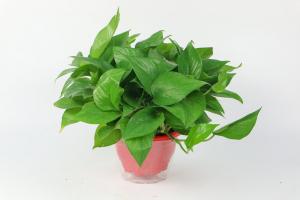Do Black Walnut Trees Kill Other Plants?
Black walnut trees (Juglans nigra) are known for their beautiful wood and tasty nuts. However, they also have a reputation for being allelopathic, which means that they release chemicals into the soil that can inhibit or even kill other plants. While this characteristic has been known for centuries, recent research has shed new light on the mechanisms behind it and the extent of its effects.
The Chemicals in Black Walnut Trees
The main chemicals responsible for black walnut's allelopathic effects are called juglones. These are produced by the tree's leaves, nuts, and bark, and are released into the soil through root exudates, litter, and decomposition. Juglones are toxic to many plants, as they interfere with their ability to grow and photosynthesize. In particular, they disrupt the electron transport chain in plant cells, which is essential for producing energy from sunlight.
The Effects on Other Plants
The severity of black walnut's allelopathic effects depends on several factors, such as the distance from the tree, the age and size of the tree, the amount of litter and roots present, and the sensitivity of the plants involved. Some plants are highly susceptible to juglones, such as tomatoes, potatoes, and peppers, while others are more tolerant, such as grasses, sedges, and ferns. However, even tolerant plants may experience reduced growth, wilting, yellowing, or death if they are in direct contact with the tree's roots or litter.
Ways to Mitigate the Effects
If you have a black walnut tree in your backyard and want to grow other plants, there are some strategies you can try to reduce the allelopathic effects. One option is to plant them as far away from the tree as possible, ideally at least 50 feet, to minimize the exposure to juglones. Another option is to use raised beds or containers, which can isolate the plants from the soil and reduce the amount of juglones they absorb. You can also amend the soil with organic matter, such as compost or manure, which can dilute the juglones and improve the soil's fertility. Finally, you can select plants that are known to be tolerant to juglones, such as black-eyed Susan, goldenrod, and daylily.
The Benefits and Drawbacks of Black Walnut Trees
Despite their allelopathic effects, black walnut trees have many benefits that make them valuable in some contexts. For example, their wood is prized for its hardness, durability, and beauty, and is used in furniture, flooring, and musical instruments. Their nuts are also a nutritious and delicious food source for humans and wildlife, and can be used in baking, cooking, and crafting. Additionally, black walnut trees are often used as shade trees or landscaping trees, as they have a dense and attractive canopy and can grow up to 100 feet tall.
However, black walnut trees also have some drawbacks that should be considered before planting them. In addition to their allelopathic effects, they are susceptible to various diseases and pests, such as walnut anthracnose, thousand cankers disease, and walnut caterpillars. They also have a deep and extensive root system that can damage sidewalks, driveways, and foundations if not properly managed. Finally, their nuts can be hazardous to livestock and pets if ingested in large quantities, as they contain a toxin called juglone.
Conclusion
In conclusion, black walnut trees do have allelopathic effects on other plants, but the severity of these effects depends on various factors and can be mitigated by proper planting and management techniques. While black walnut trees have many benefits, they also have some drawbacks that should be considered before planting them. If you are interested in growing other plants near a black walnut tree, be sure to do your research and follow the best practices to ensure their success.

 how many times do yo...
how many times do yo... how many planted tre...
how many planted tre... how many pine trees ...
how many pine trees ... how many pecan trees...
how many pecan trees... how many plants comp...
how many plants comp... how many plants can ...
how many plants can ... how many plants and ...
how many plants and ... how many pepper plan...
how many pepper plan...































